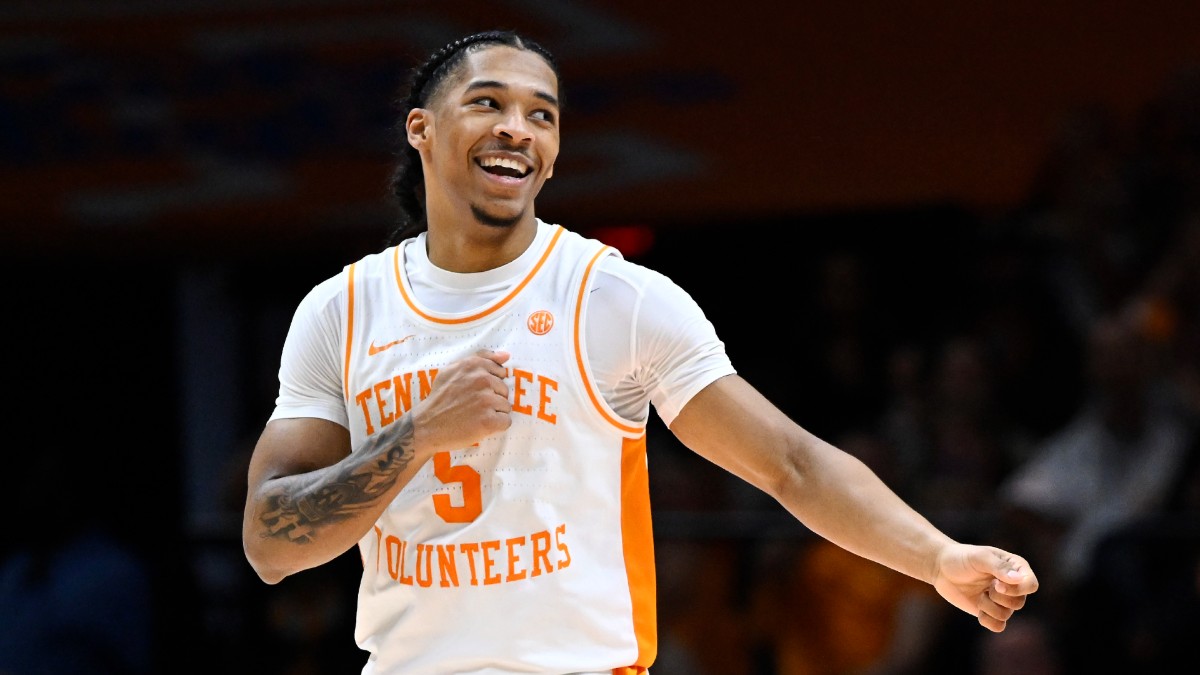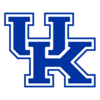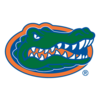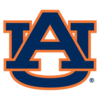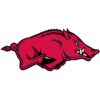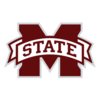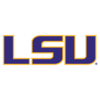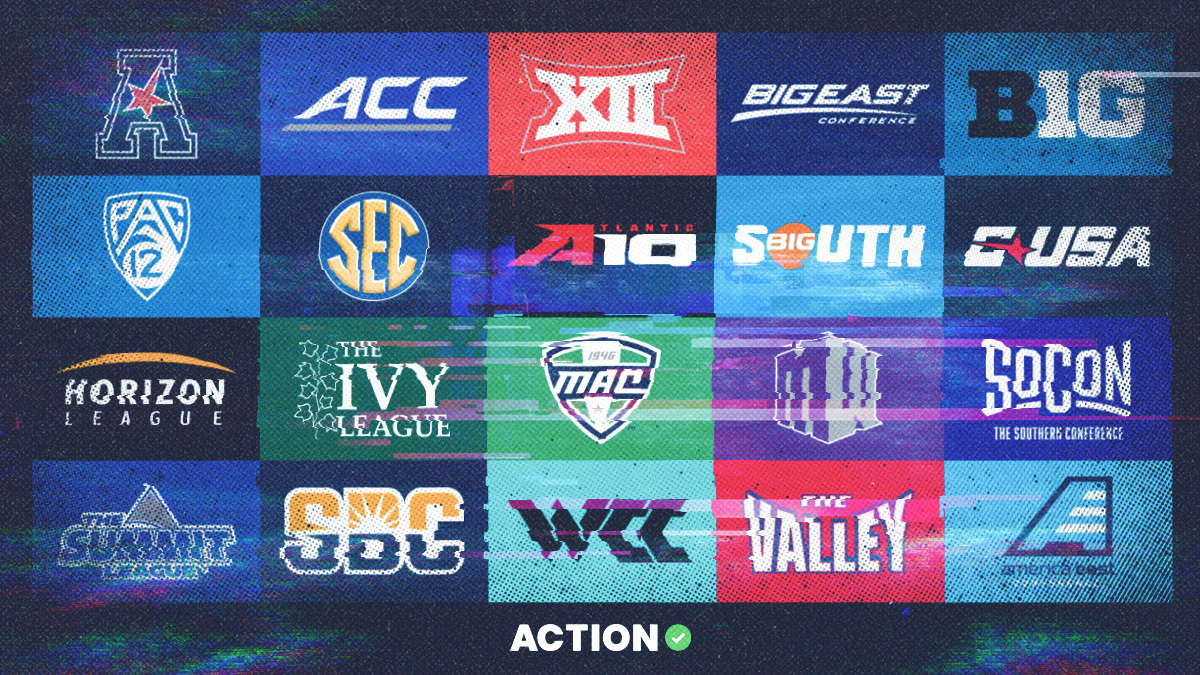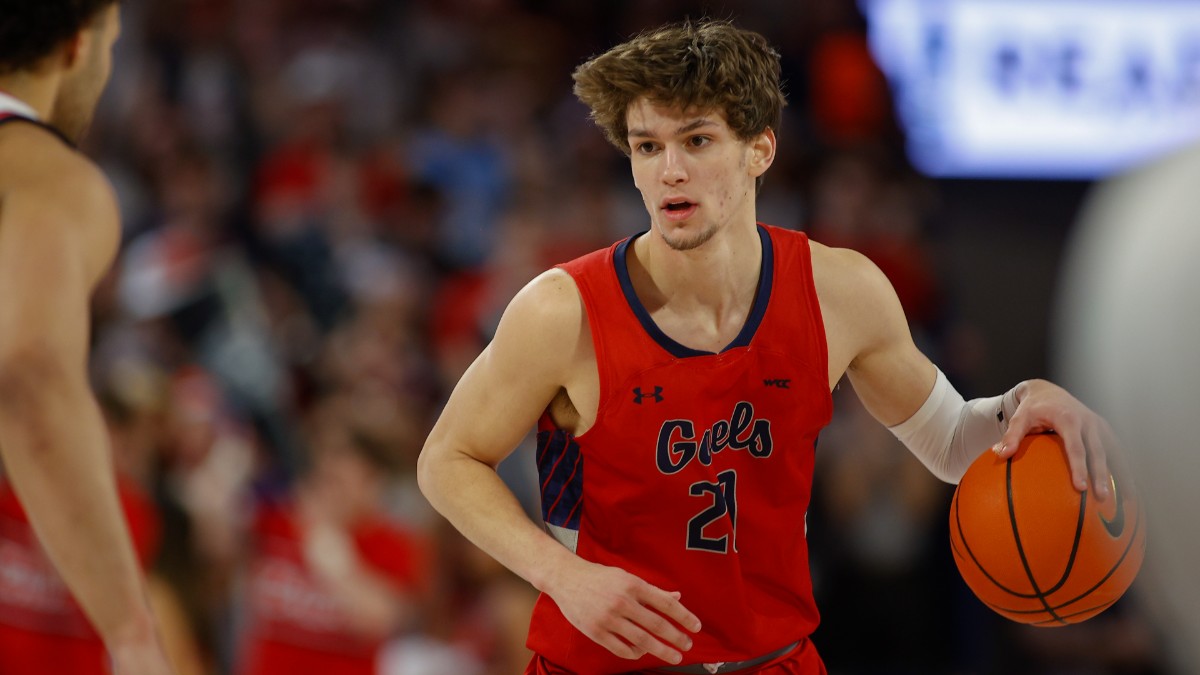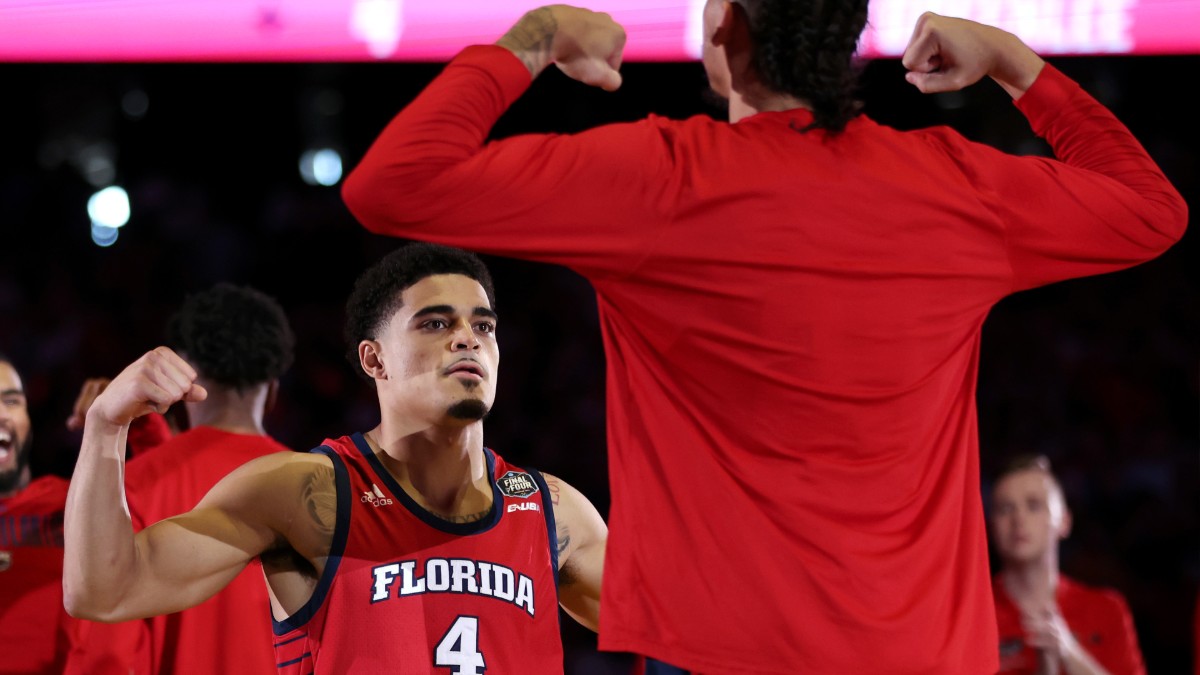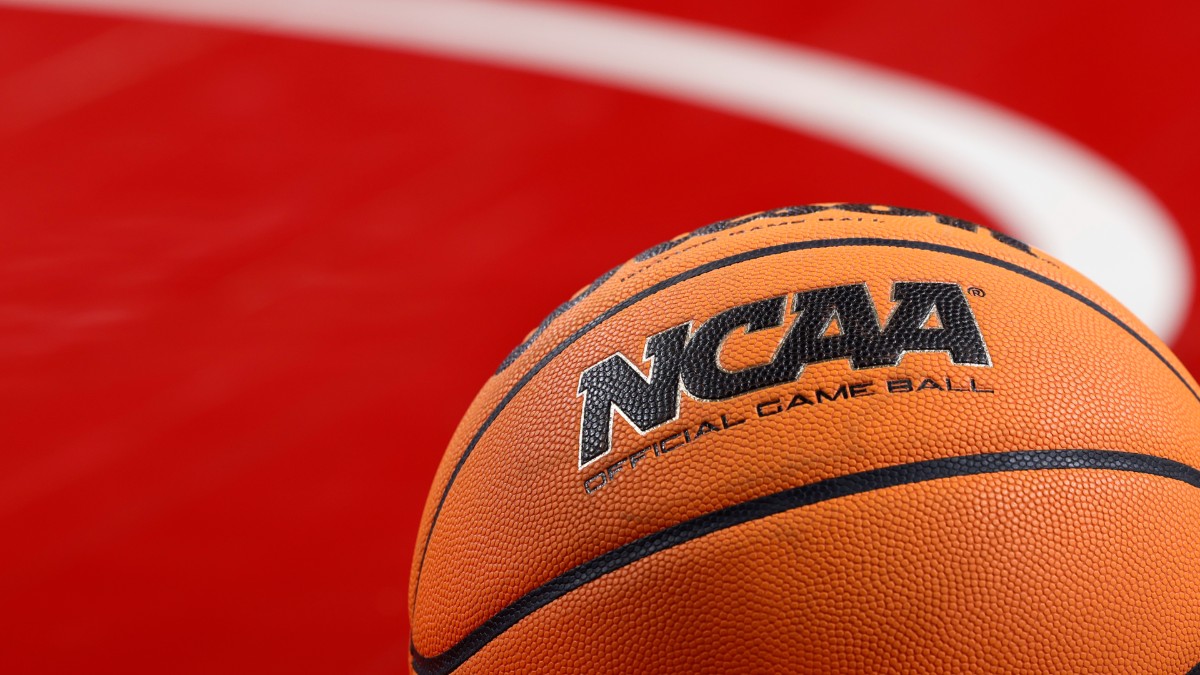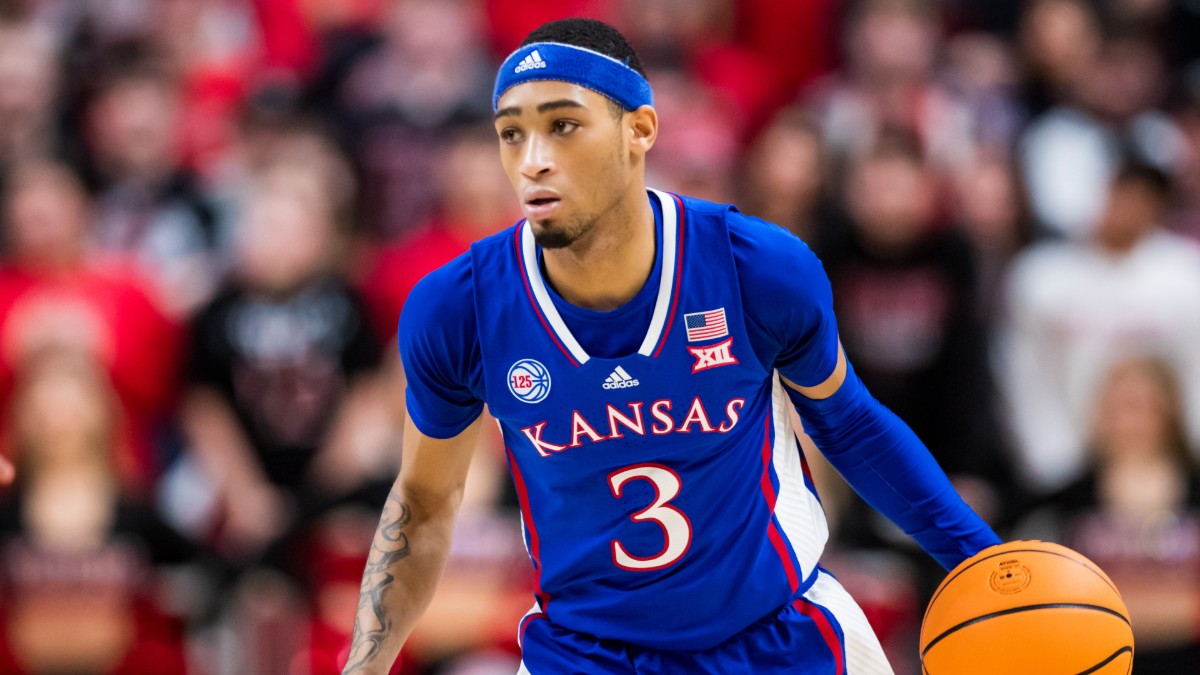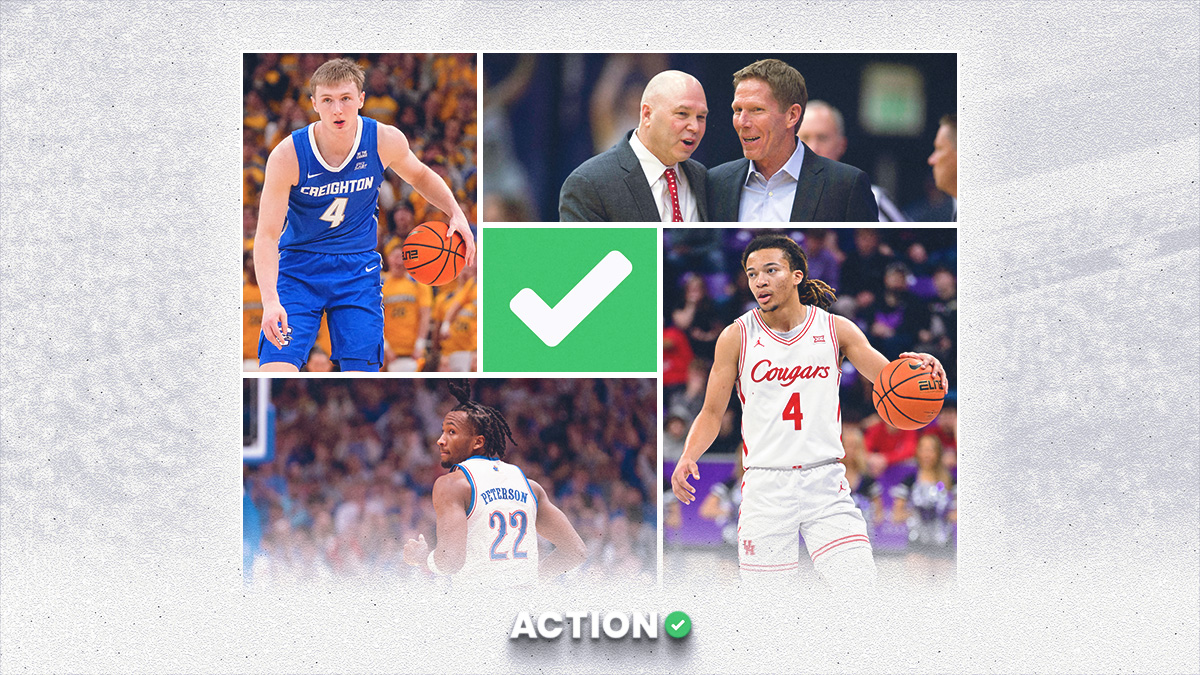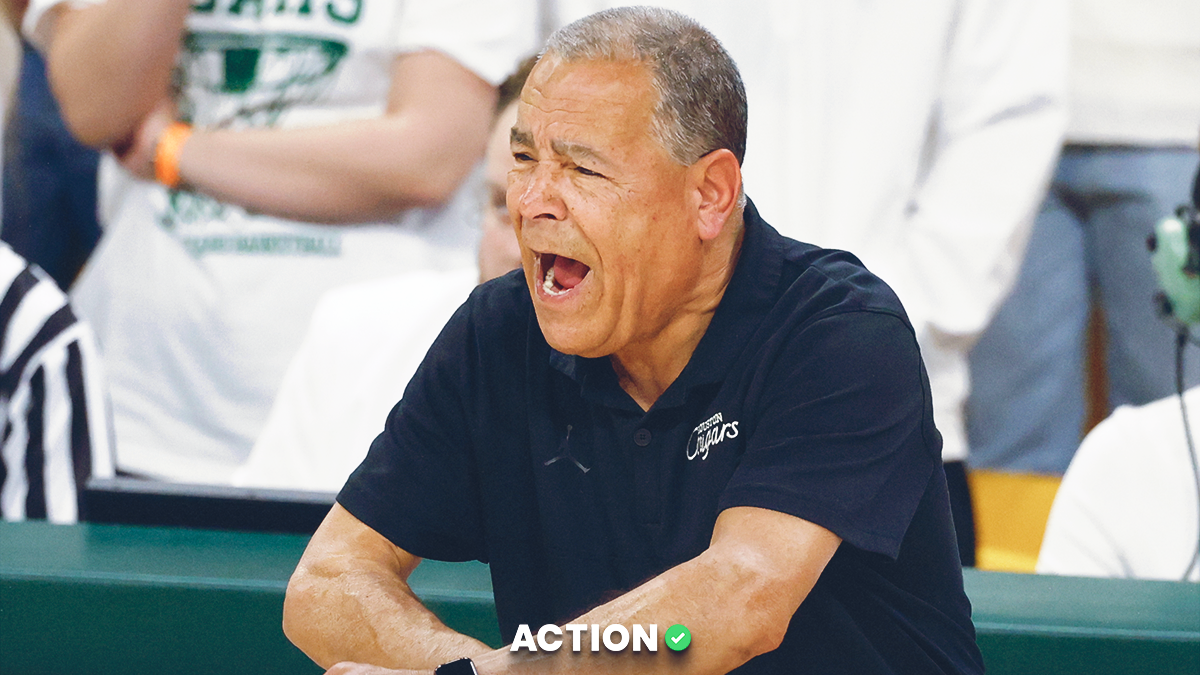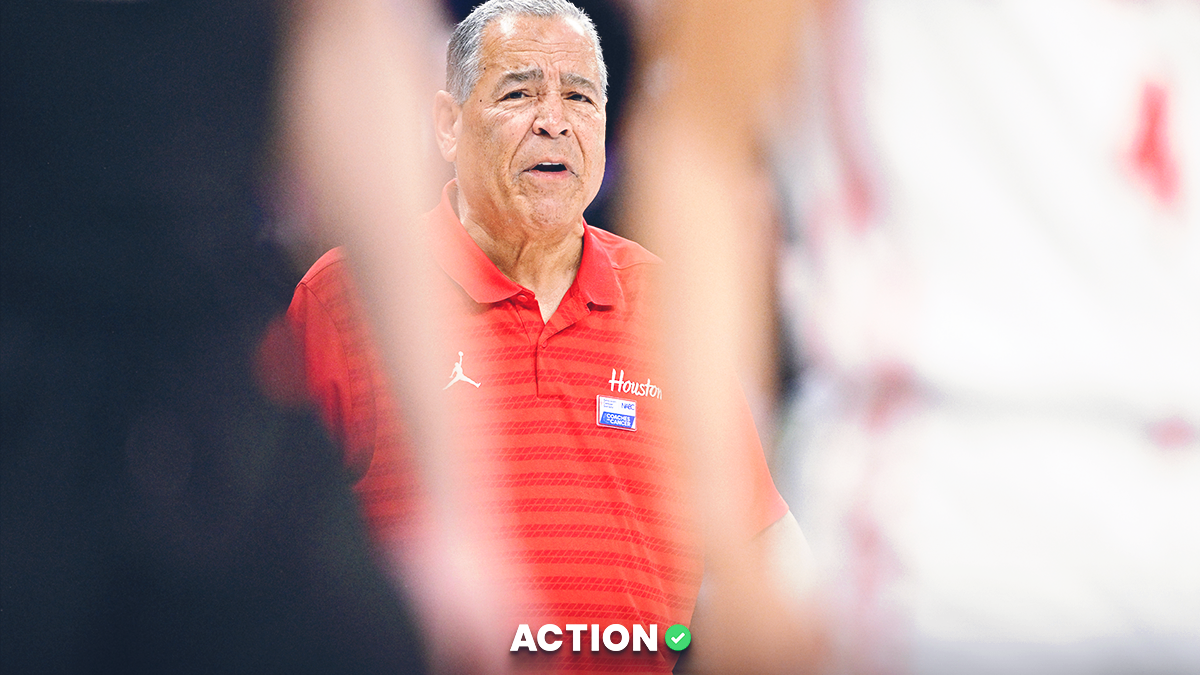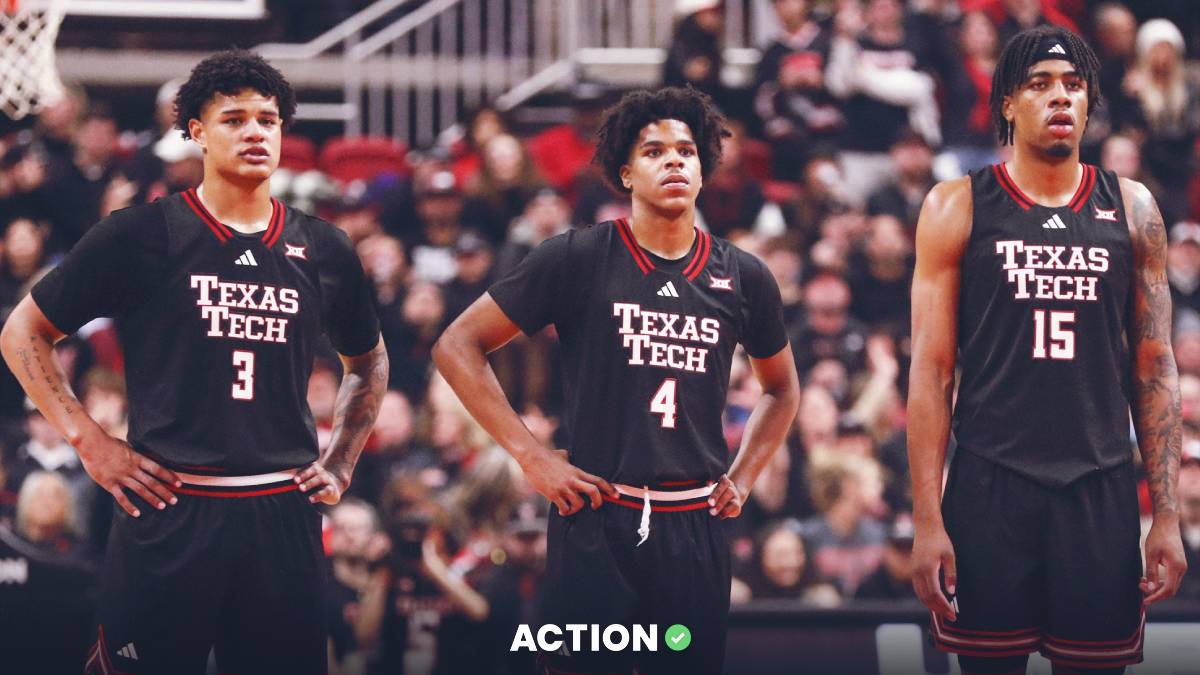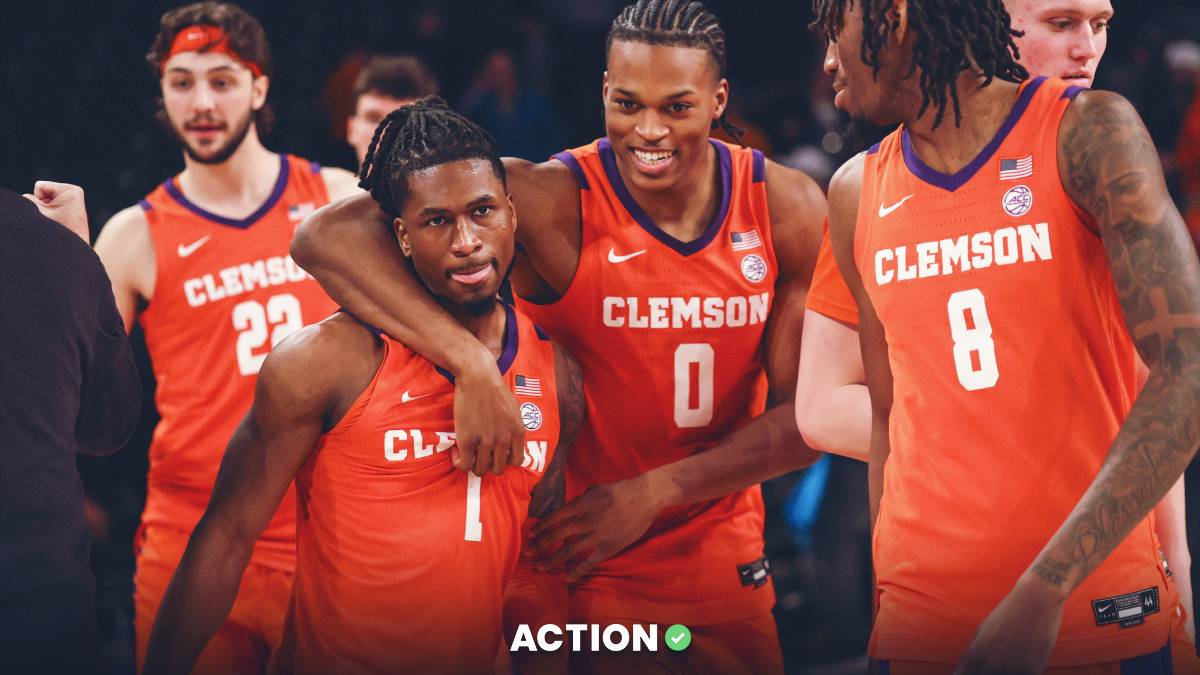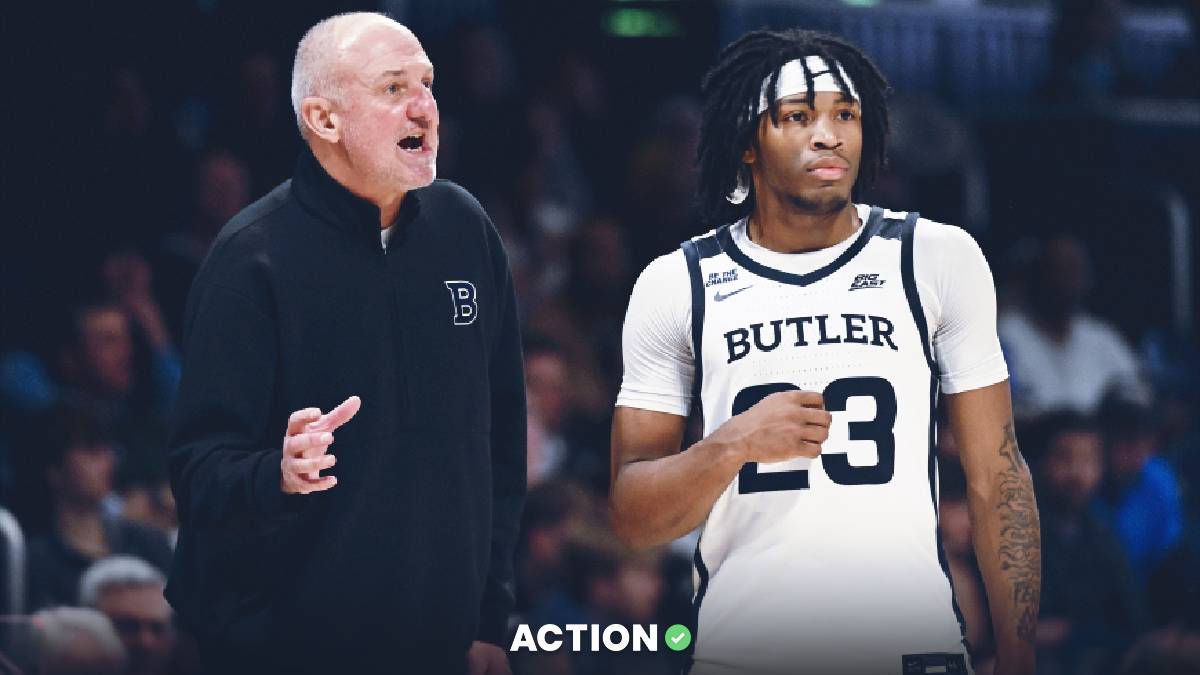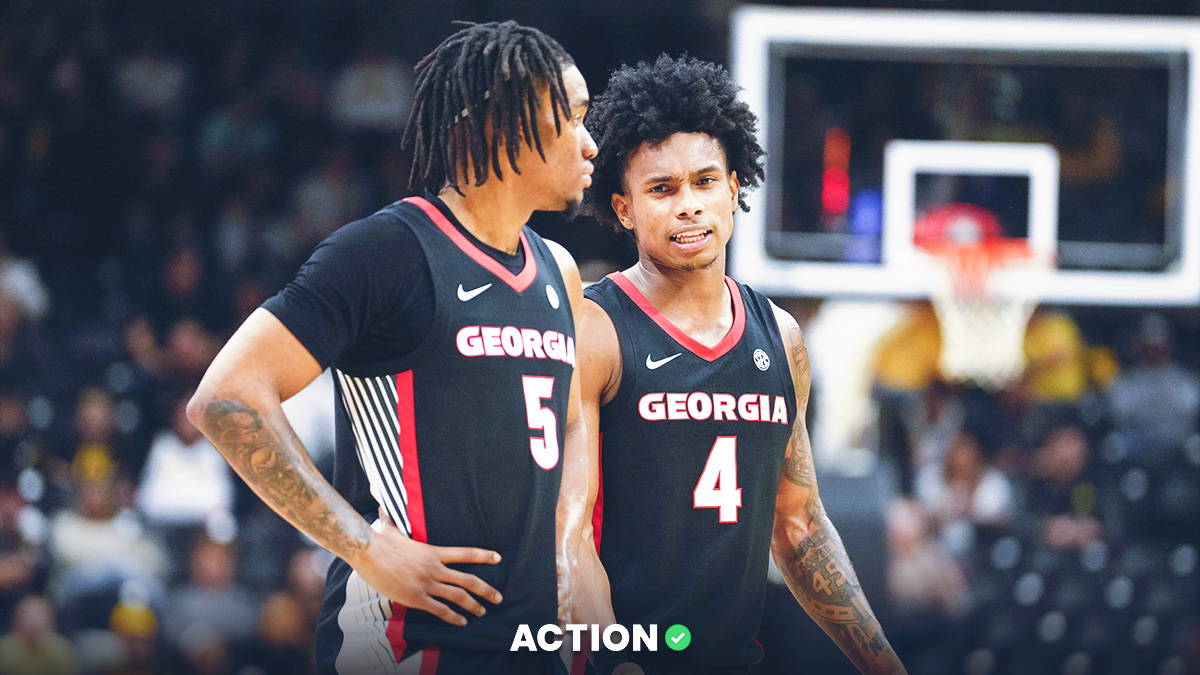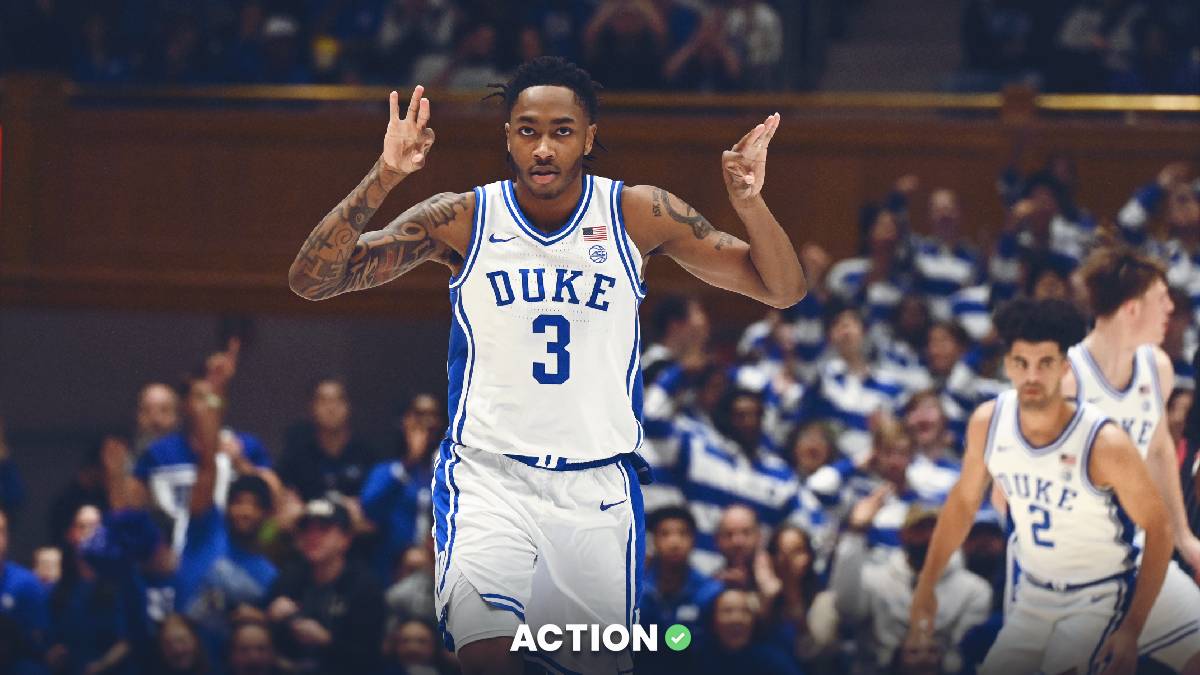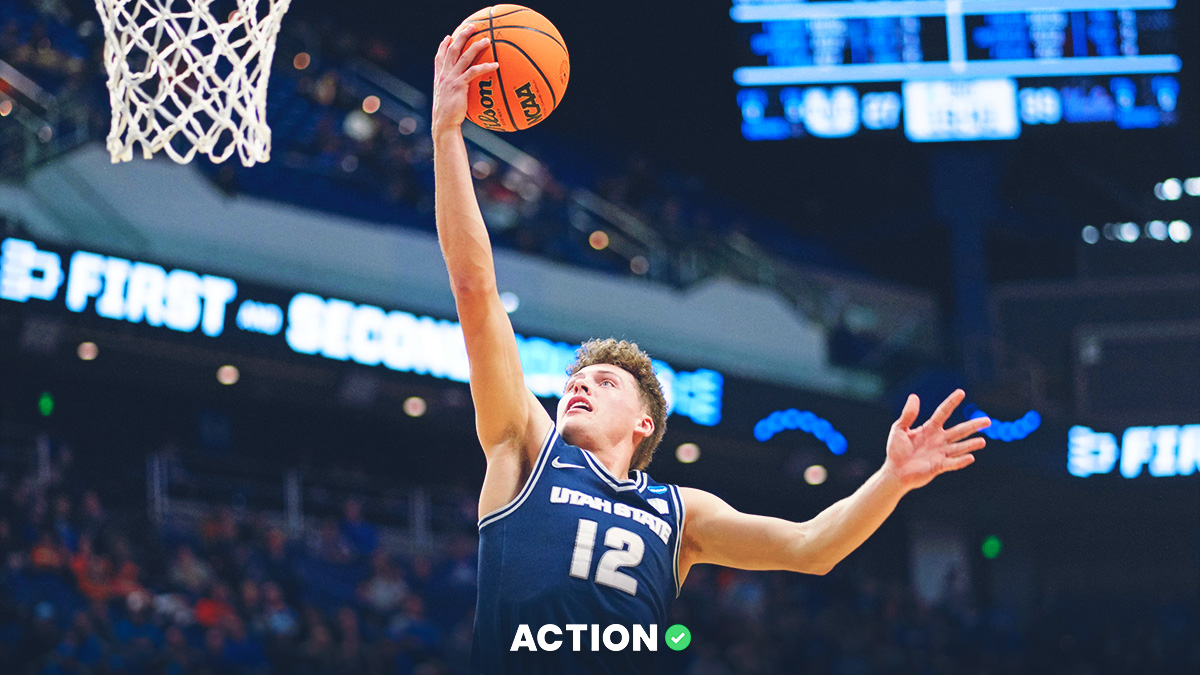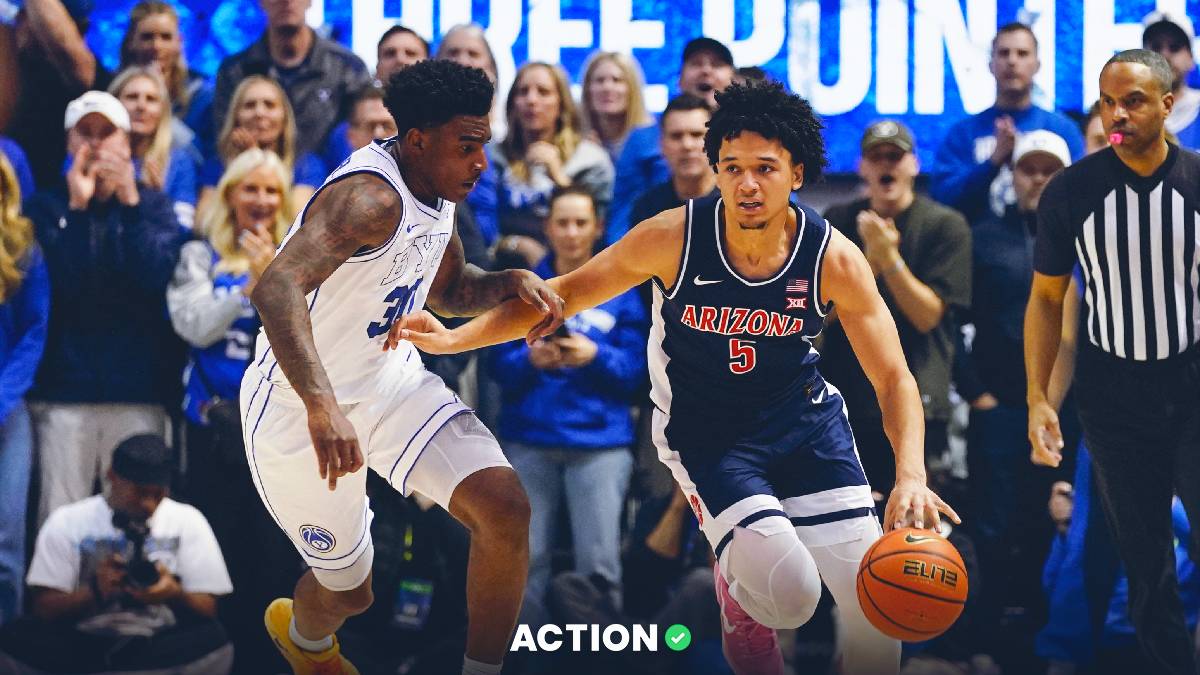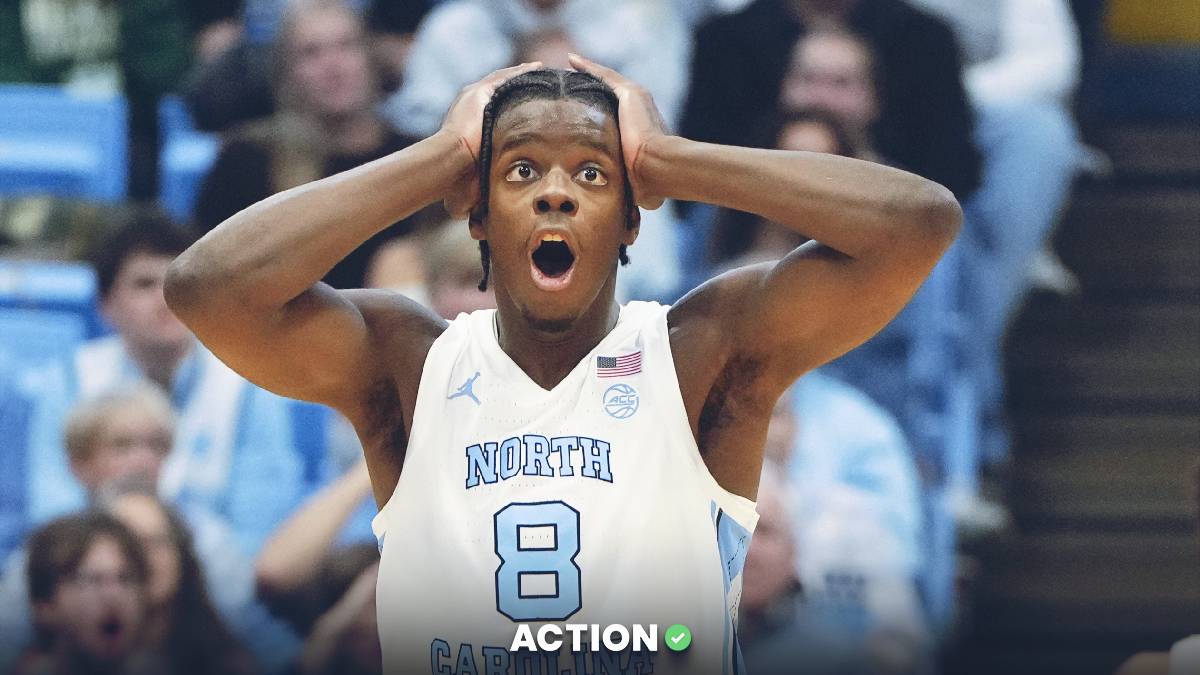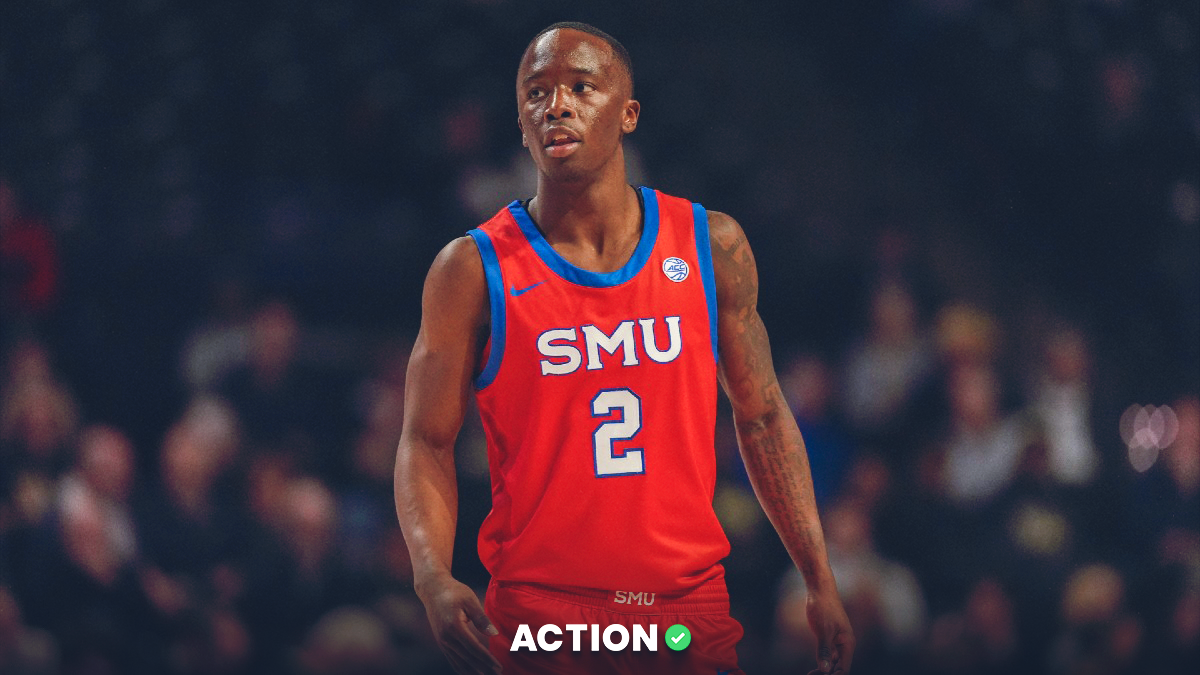Alabama took the SEC by storm last year and never really looked back. Despite all the off-court news, Brandon Miller dominated and the Tide took home both the regular season and conference tournament championships.
This season, the league is wide open. Kentucky is no longer the heavy favorite, rather it’s Tennessee atop the odds board.
There are plenty of new faces in the conference, probably none more notable than Ole Miss head coach Chris Beard.
Can Kentucky hoist the SEC championship with a band of talented five-star freshmen? Can the Vols’ experience and defensive disruption prove to be the difference? Or will another team take reins of the conference?
Here’s a preview of each team in the SEC entering the 2023-24 season.
SEC Regular Season NCAAB Conference Title Odds
| Team Name | Odds (Via FanDuel) |
| Tennessee | +290 |
| Texas A&M | +550 |
| Kentucky | +650 |
| Auburn | +700 |
| Florida | +800 |
| Alabama | +800 |
| Arkansas | +800 |
| Mississippi State | +1700 |
| Missouri | +1700 |
| Ole Miss | +2000 |
| LSU | +4000 |
| Georgia | +9000 |
| Vanderbilt | +10000 |
| South Carolina | +21000 |
The Favorite
Tennessee Volunteers
It’s no surprise to see this Tennessee team atop the SEC ranks. This is a veteran-savvy squad that hasn’t wavered in its identity. Rick Barnes preaches physicality, and his defensive-minded system is suffocating.
Zakai Zeigler and Santiago Vescovi return in what is a dominant backcourt for the Vols. Tack on Jahmai Mashack — arguably their best defender — and faster, less physical guards will have their hands completely full. The trio combined for 5.2 steals per game last year, and that’s with Mashack in a limited role.
This is a deep and old Tennessee team. Josiah-Jordan James returns for his fifth year; he's a 3-and-D type player that also boasts length and elite defense. Jonas Aidoo and Tobe Awaka will also both step into larger roles, manning down the paint as the lone players with experience above 6-foot-6.
Last season, Tennessee finished as KenPom’s No. 1 defense in college basketball. The Vols were elite at guarding the perimeter and forced turnovers at a top-20 rate. We saw that defensive prowess on display in the Round of 32 against Duke, as the Vols held a talented Blue Devils squad to just 52 points.
Bringing back a talented cast with plenty of experience puts UT in the driver’s seat for this conference, though their biggest issue once again will be offensive production.
Vescovi was the lone Volunteer to shoot above 33% from the perimeter last season and as a whole, Tennessee ranked 64th in Adjusted Offensive Efficiency, per KenPom. The Vols were 212th in eFG%, too. Most of their success came from their physicality around the rim, grabbing plenty of second-chance opportunities and keeping possessions alive.
While it remains to be seen if Ziegler can take a step forward offensively — he's an elite playmaker and having him at full health is a huge plus — Barnes brought in a couple of transfers to help boost their offense.
Dalton Knecht made his way over from Northern Colorado after scoring 20.2 points per game and shooting 38.1% from 3 last season. Meanwhile, Jordan Gainey transferred from USC Upstate after averaging 15.2 points on 34.5% shooting from the perimeter.
If either of the transfers — or the inexperienced newcomers/redshirters like Cameron Carr, D.J. Jefferson and Freddie Dilione V — can make an impact, the Vols could finally find a way to break through their Sweet 16 woes.
But until then, they’ll rely on their physicality around the rim as they look for their first regular season conference title since 2018.
The Next Best?
Texas A&M Aggies
It was a tumultuous non-conference for Buzz Williams’ Aggies in 2022-23, but come SEC play, they were among the most dominant. Winning 17 of their last 20 regular season games, Texas A&M earned its first NCAA tournament berth since 2018.
Like Tennessee, this is an extremely deep and experienced A&M team. The Aggies return four starters — Dexter Dennis has graduated — and have two seniors returning on the bench. Williams has added three upperclassmen via the transfer portal as well.
The backcourt of Wade Taylor IV and Tyrece Radford will be key to the Aggies’ success. The duo combined for nearly 30 points per game last season and are physical guards on the defensive end, too.
Taylor is the star of this team — he averaged 16.3 points on 35.6% from 3 — as he was named the SEC’s Preseason Player of the Year. He took a huge sophomore year leap with his production nearly doubling across the board.
There will be no shortage of length for this A&M frontcourt either, with Henry Coleman III and Julius Marble both returning for their senior seasons. This is a long and athletic Aggies team, one that breaks down opponents and attacks without hesitation.
While the offense ranked 264th in eFG% last season, the Aggies were fifth in offensive rebounding and third in free-throw rate. Cleaning up on the offensive glass and using physicality to get to the line — where they converted at a 75.9% clip — helped create separation and wear down opponents.
Defensively, this team ranked inside the top 50 in Adjusted Efficiency and turnover rate. Williams’ compact defense gives up plenty of looks from the perimeter — A&M allowed the second-most 3PA/FGA — which can quickly backfire (think, Penn State in NCAA tournament).
But in the SEC, where opponents often struggled from 3, it proved beneficial.
Eli Lawrence (Middle Tennessee), Jace Carter (UIC) and Wildens Leveque (UMass) should all find their way into the rotation this season. All pose as physical threats that should provide a nice boost on the defensive end.
I wouldn’t be surprised to see Texas A&M rattle off another 25-win season under Williams given the roster's experience. After finishing second in the SEC last season, the Aggies look to crown themselves champs this year.
Kentucky Wildcats
A year after being upset in the first round of the NCAA tournament as a No. 2 seed, Kentucky found itself bounced in the Round of 32.
Like many teams of year’s past, this is a brand new roster for the Wildcats.
Just one starter (Antonio Reeves) returns from last season, and he’ll likely be joined by West Virginia transfer Tre Mitchell in the starting lineup. But aside from that, every other player on this roster is a freshman or sophomore.
The good news? Three of those incoming freshmen rank inside the top six of ESPN’s Top 100. All three are perfect complements to the veteran guard Reeves and forward Mitchell.
Justin Edwards, a 6-foot-7 forward from Pennsylvania, is chief among those recruits. He’s a lefty slasher and a strong rebounder.
Following him is point guard DJ Wagner and 7-foot center Aaron Bradshaw. Oh, and down the list at No. 15 in the recruiting ranks is another point guard in Rob Dillingham.
There’s no shortage of talent here, but the biggest question: Can head coach John Calipari control a team that's so young? There could very well be three-to-four lottery picks in this grouping come NBA draft day, so there’s no question about the talent. But we’ve seen youth lead to issues in the past at Kentucky.
Bradshaw is nursing a foot injury and could miss the start of the season. Sophomore big Ugonna Onyenso is also hurt, while 7-foot-2 freshman Zvonimir Ivisic has yet to be cleared by the NCAA.
While that shouldn’t matter early in the season against non-conference opponents, it’s important to monitor as the season progresses. If there’s no injuries holding back this Wildcats team, the sky is the limit.
Sleepers
Florida Gators
Year 1 of the Todd Golden era didn't go as planned for the Florida Gators. His team really struggled despite its veteran presence and having star big Colin Castleton, finishing the regular season just one game above .500.
Despite being a physical defense that ranked inside the top 20 in eFG% (allowing the 13th-fewest 3PA/FGA in college hoops), Florida’s offense really held it back. The Gators were outside the top 300 in both 3-point shooting and offensive rebounding rate.
The offseason was a busy one for Golden. He didn’t bring in a single top-100 recruit, rather he replaced six rotational players from last year’s roster with transfers.
We’ll start with the two key returnees: Will Richard and Riley Kugel.
Richard finished with a top-50 offensive rating, per KenPom, and shot nearly 40% from the perimeter in his sophomore year. He's extremely efficient and doesn’t turn the ball over.
Kugel is another sharp-shooting guard, connecting at a 37.6% clip from 3 last season. In conference play, he ranked third in eFG% and really became a go-to scorer as the season came to a close.
Tasked with replacing Castelton will be the duo of big men in Tyrese Samuel (Seton Hall) and Micah Handlogten (Marshall). Both are 6-foot-10 or taller and will not only be deterrents around the rim but pose as efficient offensive rebounders.
Golden also brings in a trio of guards alongside Kugel and Richard, two of which were elite scorers at their previous schools. That’s Walter Clayton Jr. (Iona) and Zyon Pullin (UC Riverside), both of whom shot 45% or better from the field and combined for 35.1 points, 8.7 rebounds and 7.4 assists per game.
Julian Rishwain also makes way via San Francisco (off a torn ACL in January).
Florida is one of the most interesting teams in this conference, and one that I think hasn't been talked about enough. Golden is a phenomenal coach — he proved that at San Francisco — and this Gators squad is arguably more talented than last season’s, even without Castleton.
You’re asking for a lot from these transfers and the duo of Kugel/Richard, but the talent is there for Florida to make a run at the SEC regular season crown. It could be a fun team to watch come March.
Auburn Tigers
Bruce Pearl’s defense once again dominated in SEC play last season. The Tigers ranked inside the top 15 in eFG% and were the sixth-best team vs. 3s in the NCAA. They were a physical group and played hard. While it led to foul trouble at times, they were a tough team to score on.
The offense was a different story. While KenPom had Auburn inside the top 50 in Adjusted Efficiency, the Tigers ranked 159th in 2-point offense and outside the top 300 from the perimeter. Their guards really struggled to find any stroke, with their best shooter being forward Jaylin Williams (35.4%).
While K.D. Johnson returns, Auburn will have to replace its primary ball-handler in Wendell Green Jr. Pearl brings in five-star freshman Aden Holloway, along with transfer Denver Jones (FIU).
Holloway is expected to make an immediate impact, while Jones proved his ability to score off the dribble at FIU. Jones scored 20.1 points per game last year and shot over 37% from the perimeter. Pearl should finally have an efficient offensive backcourt.
Williams and Johni Broome are both back to man the frontcourt and take another step forward this season. The duo combined for 25 points and over 13 rebounds per game, with Williams as the dominant scorer and Broome as one of the best rim protectors in the conference.
Dylan Cardwell and Chris Moore both return for their senior seasons as rotational depth, while Tre Donaldson — 40.6% from 3 in limited action — should also come off the bench to play some decent minutes at the one.
This team is extremely deep. JUCO transfer Chad Baker-Mazara has experience at the Division I level before — he left due to academic reasons — and should slide into a large role, as well.
If the duo of Holloway and Jones can adjust to SEC play quickly, this is a team that can compete with the brutes of the conference.
The Tigers should have the defensive excellence once again; now it’s just a matter of if the offense can take a step forward.
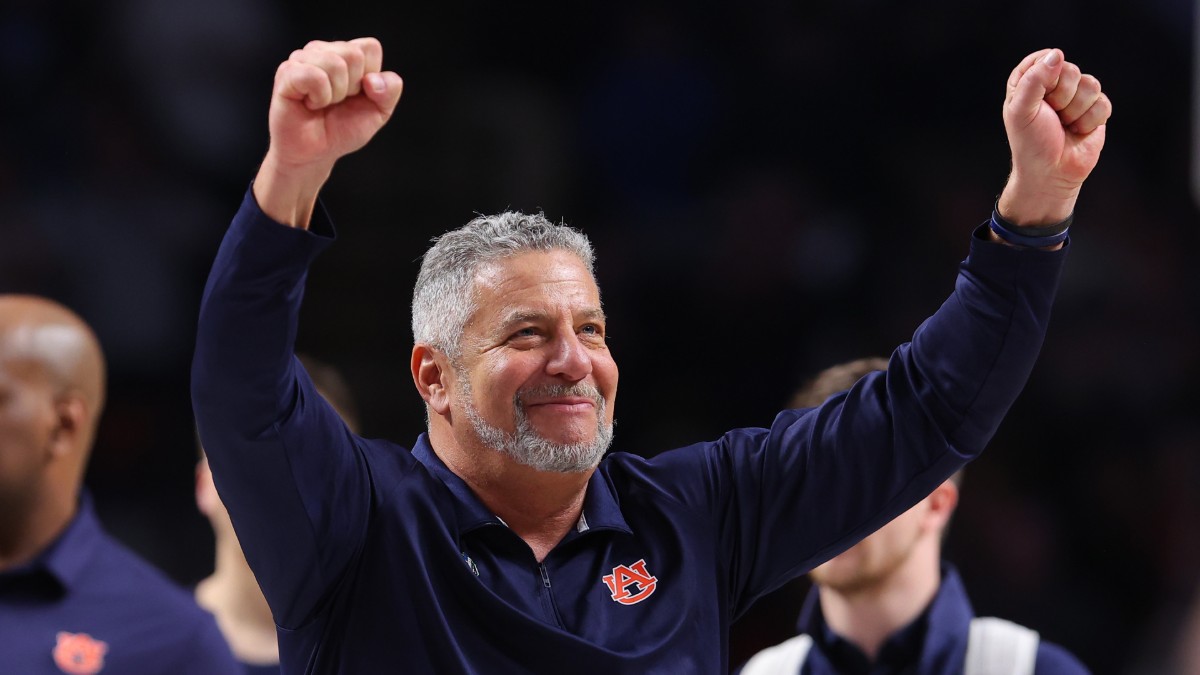
Arkansas Razorbacks
Arkansas finally showed its true colors last season in the NCAA tournament, taking down Illinois and Kansas en route to the Sweet 16. Though eventually succumbing to the eventual champion UConn Huskies, the team finally clicked despite finishing SEC play sub-.500.
While there’s plenty of turnover from last season, Eric Musselman didn’t miss a beat in the transfer portal. Nick Smith Jr., Anthony Black and Ricky Council IV are all gone, but they’ve been replaced with talented scorers in Khalif Battle (Temple), Tramon Mark (Houston) and El Ellis (Louisville).
The biggest key is that Trevon Brazile returns after tearing his ACL a season ago. He averaged 11.8 points and six rebounds per game prior to the injury and left the Arkansas frontcourt as a big weakness.
Devo Davis returns and provides stability at the point guard position. He led all players in conference play in %Min and finished fourth in 3-point shooting (41.5%) last season, but where he thrived most was on the defensive end.
Musselman’s work in the portal not only addressed Arkansas’ biggest needs but it also brought plenty of veteran experience, too. In addition to the aforementioned cast, Jeremiah Davenport (Cincinnati) and Chandler Lawson (Memphis) both join the team as fifth-year players.
Unlike last year, when Arkansas rarely dipped its hands into bench minutes, this should be an extremely deep squad. I would expect the Razorbacks to once again boast a dominant defense — last year they ranked inside the top 20 in efficiency — with no shortage of length.
The biggest question mark once again will be the offense. Arkansas, though 54th in KenPom’s efficiency metric, sat outside the top 300 in 3-point shooting. It was 160th in eFG% and outside the top 150 in turnover rate.
The additions of Battle (17.9 PPG, 35% from 3) and Ellis (17.7 PPG) should help provide a boost on the offensive end and lead Arkansas to a top-five finish inside the SEC.
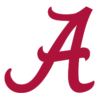
Alabama Crimson Tide
The defending SEC regular season and tournament champs lost four starters from last year’s squad. Miller is no longer the driving force and head coach Nate Oats has a lot of work to be done without the frontcourt of Charles Bediako and Noah Clowney. The primary ball-handler — Jahvon Quinerly — is gone, too.
Mark Sears returns for his senior season and will be the primary option in this offense.
Oats immediately countered his losses by adding Aaron Estrada (Hofstra), Latrell Wrightsell Jr. (Cal State Fullerton) and Grant Nelson (North Dakota State) in the transfer portal.
All three averaged 16+ points per game for their respective teams a season ago, with Estrada and Wrightsell connecting at 36.8% clips or better from 3. The 6-foot-11 Nelson was a do-it-all big himself and nearly averaged a double-double.
We know what Alabama is going to want to do under Oats: play fast and shoot a lot of 3s. The additions Oats made exemplifies that to its fullest.
Rylan Griffen will also be asked to take a sophomore-year leap after showing some glimpses of potential.
Alabama has a ton of potential here, but it's also asking a ton out of its mid-major transfers. The SEC is one of the most physical conferences in basketball, and it remains to be seen whether guys like Estrada, Wrightsell and Nelson can translate.
Sears himself had his moments, but he was never the go-to guy like he was at Ohio in 2022.
The talent is there, but I have some questions about how well the Tide will gel and be able to compete against the more physical teams out there.
Mississippi State Bulldogs
Chris Jans’ first year at the helm was a rollercoaster. The Bulldogs started non-conference play 11-0 with wins over both Marquette and Utah. But come conference play, Mississippi State struggled, starting 1-7.
The Bulldogs eventually secured an NCAA tournament berth, though, before losing to Pitt.
The bright side to this? Every single starter from last season returns for Jans, all of whom are seniors or fifth-year players. This is going to be an extremely experienced bunch that should be among the best defenses in college hoops again.
Last year, Mississippi State finished ninth in Adjusted Defensive Efficiency. The Bulldogs were just outside the top 25 in turnover rate and 2-point defense, but were extremely disruptive and physical. They slowed games down to a halt, using their athleticism on the glass to create consistent second-chance opportunities.
The bad news is that starting center Tolu Smith (foot) is out until at least conference play — if not longer. The 6-foot-11 fifth-year talent was Mississippi State’s leading scorer and rebounder (15.7 PPG, 8.5 RPG). Oh, and his backup — KeShawn Murphy — is also out until Christmas.
That puts a lot of pressure on West Virginia transfer Jimmy Bell Jr. to step in and make an immediate impact at the five. The Bulldogs will be forced to play small ball until Murphy is back, but the status surrounding Smith is of grave concern.
Aside from the huge losses in their frontcourt, the offense will be a huge question mark. Mississippi State ranked last in 3-point offense and 328th in eFG% last season. Not only that, but it shot a combined 64.7% from the free-throw line, too.
Jans brings in Andrew Taylor (Marshall) from the portal to help guide a steady hand on the offensive end (20-5-5 in his senior season). He’s immediately the best shooter on the team from a numbers POV.
If Smith is able to return come SEC time, there’s a chance this Mississippi State team can make a run at the conference crown. The Bulldogs have the veteran experience and the elite defense to pair with it. Only time will tell how this offense progresses.
Missouri Tigers
Dennis Gates’ first season at the helm was a big success for Missouri. Considered by most as a bottom feeder in the SEC, the Tigers won 23 games in the regular season and secured an NCAA tournament berth.
There’s a lot of turnover for this Tigers squad this season, though. Mizzou’s four leading scorers from a season ago have since departed and just one player — Noah Carter — averaged over eight points per game.
Missouri will be an extremely experienced team despite the roster changes. Gates brings in three grad transfers that all should see starting roles — or a sixth man role — right away. That includes sharpshooters Caleb Grill (Iowa State) and John Tonje (Colorado State), as well as 7-foot-5 Connor Vanover (Oral Roberts).
It’ll also be interesting to see how JUCO transfer Curt Lewis adjusts. He's a season removed from being named NJCAA Division I Player of the Year, and he led his team to a national title.
Last season, it was the offense that thrived for Mizzou. It ranked ninth in Adjusted Efficiency and rarely turned the ball over. This was a team that shot a lot of 3s, but it found consistent success in doing so. The Tigers were also 14th in 2-point offense.
Their issue was defense. They ranked 362nd in defensive rebounding and fouled at an extremely high rate. In general, their defense ranked 180th in Adjusted Efficiency and really struggled to stop opponents. It ultimately led to their downfall against Princeton in the NCAA tournament.
I would expect a step back from Missouri this season, but it's shown its ability to surprise previously. This team has a high ceiling, but its floor could also be worrisome.
Ole Miss Rebels
This is going to be one of the most interesting teams in the entire conference. Beard makes his return to the SEC to man an Ole Miss team that finished 3-15 in league play a season ago.
While Matthew Murrell and Jaemyn Brakefield remain with the program for their senior seasons, everyone aside from sophomore TJ Caldwell has left the program.
And that means a ton of transfers and new faces.
Murrell was dominant in his sophomore season, but he really struggled to find his stroke last year. His 3-point shooting dropped from 38.6% to 30.4%. He will be the main scorer, though he'll have more help aside from Brakefield.
Jaylen Murray (Saint Peter’s) makes his way over and will likely slide into the starting point guard position. He shot 35.7% from the perimeter a season ago and scored 12.5 points in just 25 minutes per game.
The other transfers include Allen Flanigan (Auburn) and Austin Nunez (Arizona State), and Caldwell should see an expanded role behind Murray.
The biggest question marks entering the season for Beard are the statuses of Brandon Murray (Georgetown) and Moussa Cisse (Oklahoma State). Both are awaiting word from the NCAA on their immediate-eligibility waivers and could miss the season.
Jamarion Sharp (Western Kentucky) will start at center for Ole Miss. He averaged 4.1 blocks per game last season and could be one of the best rim protectors in the SEC.
There’s a ton of talent on this Ole Miss roster, but the question marks surrounding Brandon Murray and Cisse’s statuses loom large. If they return, we could see the Rebels finish towards the middle of the pack.
Beard is an extremely talented head coach, but he'll have his hands full in Year 1 in Oxford.
Quick Hitters
LSU Tigers
Matt McMahon’s first season at LSU went anything but how it was expected to. After LSU began the season 12-1 (with a win over Arkansas to kick off SEC play), the Tigers won just one game the rest of the regular season.
Now the Tigers have to replace their three leading scorers from a season ago and 68.3% of their overall scoring.
McMahon is in a tough spot, bringing in six players from the transfer portal. But one of those players — Tulane’s Jalen Cook, who averaged 19.9 points last year — is awaiting an immediate-eligibility waiver ruling.
His absence would be significant, and LSU would be nothing more than a bottom feeder in the SEC this season.
Georgia Bulldogs
There were a lot of first-year head coaches in the SEC in 2022-23, including Mike White, who joined the Bulldogs after a stint at Florida.
Georgia finished .500 with a couple of excellent wins against Auburn and Kentucky along the way, but it was expected to be a down year for the Bulldogs.
Georgia’s three leading scorers from last year — Terry Roberts, Kario Oquendo and Braelen Bridges — have departed.
To combat that, White has brought in five transfers and four freshmen.
All eyes will be on Noah Thomasson (Niagara), who averaged 19.5 points per game and shot nearly 40% from 3 last year.
Georgia will have plenty of size as well, with seven non-freshmen checking in at 6-foot-7 or taller.
While this team’s roster composition isn’t poor, it’s hard to see the Bulldogs making a splash in a talented SEC. The Bulldogs should sit around the bottom few of the conference once again in 2023.

Vanderbilt Commodores
A slow non-conference start ultimately played doom to Vanderbilt’s NCAA tournament hopes. Jerry Stackhouse’s squad entered SEC play at just 7-6 but actually finished sixth by season’s end.
Tyrin Lawrence and Ezra Manjon return to make up an experienced and talented backcourt.
The Dores' biggest loss comes in the frontcourt, as Liam Robbins and Quentin Millora-Brown both left.
Colin Smith and Ven-Allen Lubin (Notre Dame) are young and will be expected to play larger roles in this frontcourt. Same goes for Tasos Kamateros (South Dakota).
South Carolina Gamecocks
Another team that will likely find itself at the bottom of the SEC standings this season is South Carolina, which brings in four transfers that should see significant roles.
All eyes will be on Meechie Johnson Jr., who took a huge jump in his first year with the Gamecocks. The former Ohio State transfer is the team’s leading scorer and primary ball-handler now that GG Jackson has since departed.
The Gamecocks finished last year 4-14 in SEC play, and it looks as though the same is in store here.
The talent on the roster just isn’t on the same level as others in the SEC.
SEC Futures & Betting Recommendations
I personally don’t think there’s much value on Tennessee as the clear-cut favorites. But there are two teams that I think present value on the board at this point in time: Arkansas (+1000, FanDuel) and Auburn (+1200, DraftKings). Those are the two sleepers I’m taking a stab at, splitting a unit across the two (.5u apiece).
While the Razorbacks lost plenty of talent from their roster last season, they bring in a ton of depth, length and experience from the transfer portal. Brazile returning from injury should pay dividends as well.
As for Auburn, already having a dominant and established frontcourt is key. I would expect Williams and Broome to both improve this season on the offensive end, while all eyes shift towards the trio of Holloway, Jones and Baker-Mazara.
This team, if it clicks, has the potential to not only be an elite squad but take that much-needed step forward on offense. The Tigers lost plenty of close games that mostly stemmed from their inability to convert down the stretch, otherwise we’d be looking at this team differently entering the year.


